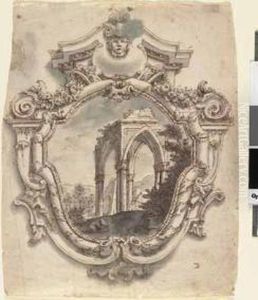Giovanni Battista Alberoni Paintings
Giovanni Battista Alberoni was a prominent Italian cardinal and statesman, born on May 31, 1664, in Fiorenzuola d'Arda, a small town in the Duchy of Parma. His early life was marked by humble beginnings, with his family being of modest means. Demonstrating a keen intellect from a young age, Alberoni pursued an education in theology and canon law, which paved the way for his entry into the church. His rise within the ecclesiastical ranks was rapid and was significantly aided by his diplomatic skills and charismatic personality.
Alberoni's career took a decisive turn when he entered the service of the Duke of Parma as a diplomat. His talents in negotiation and diplomacy soon caught the attention of the Spanish court, and in 1711, he was sent to Spain as the representative of the Duke of Parma. It was in Spain where Alberoni's influence would reach its zenith. He became a close advisor to Philip V of Spain and his second wife, Elizabeth Farnese, leveraging his position to orchestrate expansive diplomatic and military campaigns aimed at restoring Spanish influence in Italy and beyond. His ambitions, however, eventually led to his downfall. In 1719, following the failure of several of his initiatives and growing opposition from other European powers, Alberoni was dismissed from his Spanish posts and exiled.
Despite this setback, Alberoni's career was far from over. In 1717, before his fall from grace, he had been made a cardinal by Pope Clement XI, a title that provided him with a new sphere of influence within the Catholic Church. Returning to Italy, Alberoni focused on ecclesiastical matters and the administration of his diocese. He became known for his efforts to reform the church and improve the conditions of the poor. Throughout his later years, Alberoni continued to engage in political matters, albeit in a more subdued capacity, using his extensive network of contacts across Europe to influence events from behind the scenes.
Cardinal Giovanni Battista Alberoni passed away on June 26, 1752, in Piacenza, Italy. His legacy is a complex one, marked by ambitious political and military endeavors that had a lasting impact on the European geopolitical landscape of the 18th century. Despite the controversies and challenges he faced, Alberoni remains a significant figure in the history of the Catholic Church and European diplomacy, remembered for his dynamic personality, his intellectual contributions, and his unwavering ambition.

